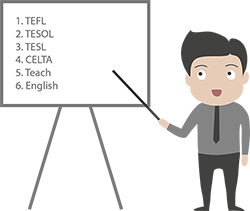UPDATED 4/21/15
Korvia sat down with EPIK program officials at the EPIK headquarters in Seoul on Tuesday, to discuss the future of the program as well as new program policies. While some of the policies will not take effect until next year, it’s safe to say that 2015 will feature some of the biggest changes to EPIK eligibility policies to date.
Earlier this month, EPIK reversed its decision to not use recruiting agencies and selected 4 agencies to be official partners of the program. Korvia Consulting was selected as one of the 4 agencies and will partner with EPIK for the 2015 and 2016 school year.
READ: EPIK Program Selects Korvia as 1 of 4 Official Recruiters for 2015
If you plan on applying to the EPIK program for the Fall 2015 intake or beyond, you need to be aware of these 5 big policy changes:
1. TEFL Now Compulsory for English & Linguistics Majors
Perhaps one of the biggest changes was EPIK announcing that those who majored in English or Linguistics for their Bachelor’s degree will now need to complete a TEFL/TESOL course; only those who possess a Bachelor’s degree in Education will be exempt from the requirement.
Originally English, Linguistics, and Education majors were able to enter on a higher payscale level and were therefore not required to complete a TEFL or TESOL course. The change will surely send many who originally did not think they needed a TEFL certificate to get certified in time for the Fall intake.

2. In-Class TEFL Component Required for Busan and Gyeongnam
UPDATED: 4/21/15 – Korvia has modified this information to better reflect official statements
For EPIK applicants wishing to teach in the popular metropolitan city of Busan, they will need to complete a 100-hour TEFL course that has an in-class component comprised of 50-hours or more. Applicants that wish to apply for the surrounding Busan area known as Gyeongsangnam-do, applicants will need to complete a 100-hour TEFL course that has an in-class component comprised of 20-hours or more.
3. Applicants Must Now Submit a Smoking Refrainment Declaration
All applicants are now required to sign a sworn declaration form stating that they will refrain from smoking at their school or in sight of students or co-workers.
As stated in the document that must be sent with an applicant’s final documents package:
“I will refrain from smoking in public areas where there is a reasonable chance where I may be seen by students or co-workers. In addition, I will not smoke in the following settings: Offices of Education, Educational Institutes, or other venues designated by my school/supervisor/EPIK officials.”

4. Authorized FBI Channelers Now Accepted
The EPIK program will now officially accept FBI Identity History Summary Checks (IHSC) from FBI-approved channelers. The change comes after an FBI system upgrade slowed processing times down to a screeching 3-month halt last summer. The delay held up many applicants’ final document submissions to EPIK, and thus jeopardizing their placement. By using a channeler, applicants are often able to receive an IHSC back in under 2 weeks.
Please note that only FBI-approved channelers such as Accurate Biometrics will be accepted by the EPIK program. Using a channeller not found on the FBI’s Approved List will risk their IHSC being rejected by EPIK.
5. SA Applicants Now Required to Submit Middle & High School Verification Letter
South African applicants will now be required to submit official letters from both their middle school and high school that states that the school’s primary language was English.
South African applicants will need to submit these two letters of proof in their initial documents submission.

So what do you think of these new eligibility policies? Do you agree with the new changes? Or do you think they’re a step in the wrong direction? Korvia would love to hear feedback from ours readers! Please leave a comment in the comment section below.






I think it’s a step in the right direction towards weeding out the ineffective ESL teachers here in Korea, or that will apply to work here. (Increasing barriers to entry.) A problem is that with all the government funding cuts year-to-year, and pushing jobs out of the cities, it’s becoming less appealing for foreign teachers to come here to teach or continue teaching here. This does nothing to help the more experienced teachers working here and may in fact be more of a hindrance for them. I think they should be doing this BUT also doing something to keep the better teachers here. I enjoy very much living, and working here, but year after year, I find it is becoming less beneficial to stay.
Don’t forget the introduction of hazy language into the contracts at an Office of Education level. Much of your remuneration package now “may” be awarded to the employee.
I couldn’t agree with you more, Nick. Weeding out the ineffective ESL teachers here is mandatory, no doubt. The main problem I have with teaching in Korea (4 years now), is really the lack of transparency and appreciation/recognition for the hard-working, dedicated teachers. I agree, there isn’t much of an incentive to keep the experienced teachers here. I, too, am finding it less beneficial to stay.
Do you have source’s for this information?If so,could you please post it?Thanks.
Yay! Finally we don’t have to wait half a year to get our background checks back!
I’m not sure if you have any access to the policy makers but for no.5 they should clarify what they mean by middle and high school because (most of) South Africa doesn’t have a middle school system – we just have primary and high schools – and seeming as it’s a SA specific rule – they should probably clarify it (ie. make it just high school- which is our last 5 years of education) before it becomes official.
I agree with what has been said. I do think 1-4 is quite relevant. But I must be honest I don’t agree with nr. 5. I was in a all afrikaans Primary and High school and only had english as a subject. This doesn’t mean I cannot speak english. Which means I won’t be accepted because my schools cannot make that claim. By reading and doing a lot of research and research papers you learn how to use the language properly. Even in University it was 50% afrikaans and 50% english. I made the choice to write in english because it was just easier and saved a lot of time, I think it will really make it unappealing to many.
So then why not accept Germans, Swedes and Danes to teach English as well? So many of them studied English as a subject but are fluent in the language. Why is SA different?
and thus the deeper question is regarding to what exactly qualifies and English speaker to teach the language. And in that matter, I’m afraid I have to side with the South Korean govt. What they are looking for is someone who knows English since their very first days, and whom was subsequently formally educated in the language. A policy that’ll likely meet that objective would be filtering out applicants by the language of their formal education, it is rare indeed that a non-English speaking child be educated in an English-speaking school . Hell, even a US/Commonwealth expat from an international school would fit the profile I just outlined.
This tougher and more narrow stance is actually very detrimental to my case, as I was born and raised in Argentina and my school language was Spanish only, with English as a subject, the same as yours. I am otherwise nearly bilingual, and haven’t formally studied to achieve it, therefore I have full confidence on my potential ability to become a competent English teacher.
Thank goodness for the background check changes! I had to drive myself to D.C. to have mine apostilled in person because it took so long. Glad to know others won’t have to endure that special hell.
As for number 5, is it an accent or a grammar issue?
What about British people with a heavy Irish, Scottish, Cockney accent?
What about Americans who speak with ain’ts and aks?
Nobody has mentioned the reasons why they decided this.. please clarify.
So you want South Africans to prove they had education in English although the whole country speaks English. I understand the fact that a lot of people from South Africa had school in Afrikaans. But, have you ever heard of the term bilingual? A lot of people in western countries are immigrants. For example; I have a friend who was born in Mexico, speaks Spanish at home and went to a Spanish school in Mexico. Now she lives in the USA but she is considered a native speaker, she teaches in Korea. I met a Korean at an English orientation that moved to the USA a couple of years ago, his English is okay, not brilliant but okay and now he is considered a native speaker just because of his passport. I just want to know who came up with rule number 5, it doesn’t make any sense to target South Africans all of a sudden after 18 years. If you do your research you’ll see that a lot of westerners are bilingual, just take the guys from Quebec in Canada for example.
I don’t know how that guy got in, but as a Korean American, I’ve always had to submit my middle school and high school transcripts to prove that I’ve had more than 12 years of schooling in the U.S., though I was born in the States as well.
Yeah, I don’t think that’s correct, Cois. I was told I might have to give proof that I was raised in an English-Speaking home just because I was homeschooled and therefore didn’t have highschool transcripts (and I am American). If your friend went to middle or highschool in Mexico and then was hired by EPIK, there was either some misinformation or miscommunication somewhere, or EPIK broke their own rules. We have to list our middle and high school on the application and I’m pretty certain that if your middle or high school wasn’t in an English speaking country, that would be a problem.
Personally, though, I think they’d be far better off just being more picky in the interviews than automatically discounting the abilities of the South Africans who went to Afrikaans schools, but speak English fluently.
Exactly…
As a South African I feel insulted by number 5. After teaching in Korea for more than 7 years I don’t feel welcome anymore.
Come next year, I will take my knowledge and experience to a country where it’s appreciated and valued.
Why should you feel insulted? Most South Africans I have met here say that English was their second language growing up. Sure why not accept Germans and Scandinavians too?
How is “accredited instution” defined? Can we see a list? The linked page on your website uses this terminology… it would be more than unfortunate if someone took “the wrong course.”
https://www.korvia.com/tefl-certificate-korvia-guide/
What a nice way to show appreciation to the (bilingual) South African pilots who risked their lives to help South Korea in the war…
South Africans don’t have to feel insulted by no. 5. It is necessary to verify the English level of South African applicants because there are 11 official languages in South Africa. It is true that everybody speaks English in South Africa, but not everybody’s English is on the same level as their mother tongue.
I would like to know if number 5 will be in effect for the new recruits or also for the people currently working here. And it is quite an insult. Whats next ? Peurto Ricans? People from Quebec? Or will people who immigrated to an English country be next ? Where does this new condition come from?
TEFL/TESOL cost hundreds of dollars and are yet another expensive burden placed on job applicants. Wages and pay scales have fallen considerably in the last few years, making Korea an unattractive destination for educated teachers. Good teacher, smart teacher go where the money is. Like any industry top talent goes where the money is, and unfortunately that isn’t Korea anymore. The greener pastures of China beckons.
“Good teacher, smart teacher go where the money is.” I’m sorry, but I disagree. If money is the main reason why you want to teach, then you’re in the wrong profession. I’m a certified teacher in the States and while we make less money than other professions, we chose this job because we have a passion for helping students become better learners. I say good and smart teachers would go where there’s a supportive school that offers professional development and a solid student/staff community. Making TEFL/TESOL a mandatory requirement would show who’s truly committed to teaching. Those who are willing to pay demonstrate their desire to help students. Teaching is a privilege, not a right.
You know what other profession has a lot of passion for their work, their called airline pilots. Airline companies have exploited peoples passions in the same way that business exploit peoples passion for education. In the post 2008 economy everyone has passion. Gary is right, it’s just another cost that young people can’t afford. Another investment in education that pays low dividends. Teacher will simply head to markets that might require the same educational commitment yet pay a more appropriate wage. I guess it’s why the younger generations are in so much financial trouble no one thinks about retirement, home ownership, only about their passion to save the world.
I can understand the various opinions here. I’m also a certified teacher in the U.S. and I say T.N. forgot to mention that supportive schools would usually provide a more appropriate wage because they’re located in the good districts. As for passion in teaching, I think it’s important, but you need to be smart about it. A good school, community, and money that comes along with it would be where good and smart teachers go.
Gary has a point that the TEFL requirement would be a financial burden to people. But I think it’s also important that job applicants know how to teach, especially those who are not in the education field. I wouldn’t want someone teaching my child if they don’t know how to teach effectively. Gary also mentioned China as a new destination for teaching, but as someone who taught abroad in China before, I would say the pay scale is equal or even worse than Korea. Same goes to Japan. A few places I can think of that pays a bit better is in UAE (United Arab Emirates) and Saudi Arabia.
Samantha gave a good point on passion. Institutions will do that to people, though I wouldn’t categorize business exploitation to schools (maybe private schools). I was a bit confused with what you said in the beginning, but I’m assuming you meant that money gets in the way of people’s passion. In this case, the costly requirement for TEFL would hurt people investing in education because they receive little in return. As a result, they end up in financial trouble. Am I right? I like more clarifications on that from you.
As for wages/pay scale, I wouldn’t complain if I was teaching abroad and this is coming from my experience teaching abroad and teaching in the U.S. I think the main problem with making money teaching abroad is that people make it a career when that alone doesn’t financial support them in the long run. And compared to what teachers face in the U.S. with taxes, budget cuts, standardized testing, and NCLB (No Child Left Behind), those teaching abroad don’t have to deal with the big problems we have here. Schools typically provide you housing, health insurance, some tax exemption, and a cooperating teacher (depending where you teach in a public or private school). Even students are better behaved than students here in the U.S., making the job to teach easier. So you’re getting a bit more “help” than what the teachers have in the U.S. Even though the pay is lower than expected, I think it’s a bit fair considering the amount of work a foreign teacher has compared to a teacher in the U.S, Canada, and Europe. But that’s just me.
Do you have so much passion for teaching that you’ll work for free? I don’t.
I used to teach in Cambodia. Loved the work and had great students. Even felt like I was actually making a difference in my students’ lives. But the university was not in good financial shape. I have bills to pay, and I hope to eventually have a family to support. Have to have money for that, so I left for a more lucrative job.
There’s nothing wrong with wanting to earn what you’re worth (which doesn’t usually happen in education, but that’s another discussion). All else equal, if you can find a similar job with better pay or benefits, why not go for it?
There are a lot of advantages to teaching in Korea. TESOL is NOT an expensive or unreasonable requirement at all. If you actually want to be a teacher and not just someone who’s hanging out teaching in a foreign country for a year, why would you object to a requirement for a bare minimum of teacher training?
Also, EPIK has plenty of people applying. I don’t know a single person hired in the last year that doesn’t have TESOL or CELTA (and I know a lot of EPIK teachers). So this is basically EPIK just saying, “Don’t waste your time applying if you don’t have TESOL” because no one was really being hired if they didn’t have TESOL anyway.
Good, smart teachers find a balance between the high pay, and a stable position at a good school with a reputable organization.
I am from Quebec. In 2012, I had to prove that i went to an English middle and high school. Quebec also doesnt have middle school, and they accepted me showing my high school only as it covered the appropriate years.
It is a silly method to test English as there are certainly many English and bilingual speakers who went to French school, but this is no more discriminatory than only accepting teachers from certain countries.
Now if only Korean teachers were held to the same standards in regards to smoking on school sites. When I worked at a boys middle school, male teachers smoked in the teachers’ lounge, the restroom, and on the playing field. I’ve since worked at two universities where male professors and security staff smoke in the restrooms and on the grounds even though both campuses have smoke-free policies. Enforcement only seemed to be demanded of foreign instructors and students.
Two things with regards to number 5:
1. Complaints are coming from those who feel insecure on account of not having had primary education in English, and thus most likely not speaking English as their first language. Fair enough to feel threatened. Grammatical errors made by said complainers prove an unfortunate point though.
2. Don’t complain and raise awareness to the fact that only about 10% of the South African population speak English as their mother tongue. We are lucky we’re even allowed in as one of the select few countries able to teach here. Sad but true, hush hush and be satisfied.
Number 1 is ridiculous. So you have people who graduate in the field of study, already complete practicums and internships, spent thousands of dollars and four years when a 120hr certificate at $600 would have been sufficient? Now I really regret my degree.
You must have a university degree to teach in Korea, whether the degree is in English or not, so you are wrong, you couldn’t come teach here with just a $600 TESOL certificate.
And how does Creative Writing, Literature, etc, prepare you to actually teach?
If these people had thought ahead and actually planned to teach instead of treating it as a jaunt for a paid vacation, perhaps they would have considered adding the TEFL/TESOL certification to their program in the first place. I did and it hasn’t added to the cost of my education at all, but the value for the opportunity to do something I really want is immeasurable.
South Africans shouldn’t feel insulted. Yes, many Saffas are bilingual and can speak several languages well; thank the Afrikaaners who cannot speak English well at all, yet are accepting pay as English teachers. I’ve met far too many!! It’s embarassing and insulting to the parents who pay a lot of money for their children to learn proper English. It’s not about the accent, it’s about basic pronunciation, grammar and sentence structure.
Unfortunately, that’s why many super Saffa teachers will no longer be signed up.
Is it really the saffa;s fault or the recruiters? There are a ton of English experts who just so happen to be Afrikaans but it might have been ruined by others. Maybe they could just patch up the recruiting program to thin out those who are not eligible to be teachers including all countries. Firstly have a native English expert from the different English speaking countries conduct the final interviews
[…] week the recruiters Korvia put up a blog post outlining future changes to EPIK which got a lot of attention. The big double-take for me was: What […]
I am confused about the smoking ban. Korean teachers smoke. Are foreigners being singled out? Or is there a smilar ban for Korean teachers that they cannot smoke around foreigners?
So wait, if I already have a TESOL certificate, but without an in-class portion, does that mean I need to get a new certificate?
If you want to teach in Busan, yes. Or get a job in one of the other cities and after your first year, transfer to Busan.
[…] my last EPIK update, I was a little critical of EPIK for seemingly announcing major changes through the recruiters Korvia. However if EPIK wants to make major announcements via me and my blog, I’m cool with […]
Item #2.
TESL online costs less than $200.
An in class TESL costs around $1200 to $2000.
An on line TESL is reasonable, but I don’t think expense of an in class TESL is reasonable for applicants. They are expecting people to do this just to apply for a job?
And in some cases, there won’t be an in class TESL near where someone lives. (especially if they are already in Korea).
Does this mean if I was not in an English middle or high school, but I have a degree in education I still qualifiy or not?
I think the admin of this web page is in fact working hard in favor of
his web site, since here every information is quality based material.
I’m getting my degree in TESL at my university so does that mean it is counted as an in-class TESL Course??????? Because I don’t want to get that degree only to find out I could have majored in something else and just taken the class so I could have two skill sets.
Hi Leah,
You don’t need to take a TEFL Course if you have a degree in TESL. Also you don’t have to worry about an in-class TESL course as well.
We wish you all the best luck for your application.
I just finished 2 TESOL certificates totaling my TESOL on-line hours to 140. I have a Bachelor’s in Paralegal Studies from one of the top universities in my area. I took 3 Korean language courses while at my university making A’s in all of them. Both of my recommendation letters came from my Korean teachers who spoke every highly of me. How likely am I to be accepted by EPIK?
Whatever happened to merit. Nigeria is a Fully English speaking country from primary up to University level. We have a lot of good english teacher better , but amn amazed that they cannot be employed as english teacher even when clearly they deserved it. As a result denying equal opportunity and competitiveness in the EPIK PROGRAM. I think this should be looked into seriously